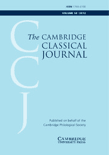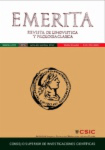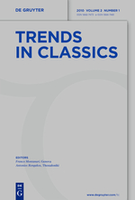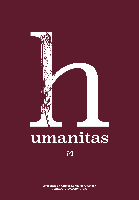
Cambridge Classical Journal
Scope & Guideline
Unveiling Timeless Insights in Literature and Theory
Introduction
Aims and Scopes
- Interdisciplinary Approaches to Classical Studies:
The journal emphasizes the integration of various disciplines, including literature, philosophy, archaeology, and history, to provide comprehensive analyses of classical texts and artifacts. - Textual Analysis and Philology:
A significant focus is placed on textual criticism, emendations, and philological studies, which contribute to the understanding of classical literature and its transmission over time. - Cultural and Historical Contextualization:
Research often explores the socio-political and cultural contexts of classical works, highlighting the relevance of ancient texts in understanding contemporary issues. - Influence and Reception of Classical Works:
The journal examines how classical texts have influenced later literature, philosophy, and art, showcasing the enduring legacy of ancient cultures. - Critical Engagement with Classical Theories:
Contributions frequently engage with classical theories and philosophies, analyzing their implications and adaptations in modern contexts.
Trending and Emerging
- Exploration of Lesser-Known Texts and Authors:
There is a growing interest in analyzing lesser-known texts and authors, as evidenced by recent papers focusing on figures like Theophrastus and Eudocia, which broadens the scope of classical literature beyond the canonical works. - Interdisciplinary Applications of Classical Themes:
Emerging research increasingly applies classical themes to modern contexts, including discussions on ethics and aesthetics, showing the relevance of ancient thought in contemporary philosophical debates. - Focus on Material Culture and Everyday Life:
Recent studies emphasize material culture and the everyday experiences of ancient peoples, moving beyond elite literary texts to explore how ordinary lives were shaped by cultural practices. - Reevaluation of Gender and Identity in Classical Texts:
There is an uptick in papers that critically engage with issues of gender and identity in classical literature, reflecting a broader trend in the humanities towards examining marginalized voices. - Digital Humanities and Classical Studies:
The integration of digital tools and methodologies in classical research is on the rise, allowing for new forms of analysis and engagement with ancient texts and artifacts.
Declining or Waning
- Traditional Literary Analysis of Canonical Texts:
There is a noticeable decrease in studies that strictly adhere to traditional literary analysis of well-established canonical texts, suggesting a shift towards more innovative or interdisciplinary approaches. - Focus on Ancient Military History:
Research centered on ancient military history and warfare appears to be less frequent, possibly reflecting a broader trend towards social and cultural studies within classical research. - Narrowly Defined Archaeological Studies:
The journal has seen fewer contributions that focus exclusively on archaeological findings without broader contextual analysis, indicating a move towards integrating archaeology with other disciplines. - Historical Biographies of Classical Figures:
The frequency of papers dedicated to detailed biographies of individual historical figures is declining, as scholars increasingly prefer thematic or comparative studies. - Studies on Ancient Languages in Isolation:
There is a waning interest in studies that focus solely on ancient languages without their contextual application in literature or culture, suggesting a preference for more integrative approaches.
Similar Journals

Emerita
Exploring the Depths of Classics and LinguisticsEmerita is a distinguished academic journal published by CONSEJO SUPERIOR INVESTIGACIONES CIENTIFICAS-CSIC in Spain, focusing on the fields of Classics and Linguistics. With its roots dating back to 1971, Emerita has established itself as an open-access publication since 1974, ensuring broad accessibility for researchers, professionals, and students alike. This journal's commitment to scholarly excellence is reflected in its 2023 Q2 classification in Classics and Q3 in Linguistics and Language, making it a vital resource for those engaged in classical studies and language research. In the Scopus rankings, it holds respectable standings, including Rank #76/170 in Arts and Humanities Classics and Rank #695/1088 in Language and Linguistics, demonstrating its significant presence and influence within these academic disciplines. The editorial office is located at Editorial CSIC, C/VITRUVIO 8, 28006 MADRID, SPAIN, where it continues to curate important research that contributes to the understanding and appreciation of classical literature and linguistic theory.

Auster
Bridging disciplines for a richer understanding of humanity.Auster is a prominent open-access journal dedicated to advancing interdisciplinary research within the fields of Humanities and Educational Sciences. Published by the esteemed Universidad Nacional de La Plata, specifically by the Faculty of Humanities and Educational Sciences, this journal has been a cornerstone for scholarly discourse since its establishment in 1996. With an ISSN of 1514-0121 and an E-ISSN of 2346-8890, Auster ensures wide accessibility to innovative research and critical analyses. Its commitment to open access fosters an inclusive academic environment, allowing researchers, students, and professionals in Argentina and beyond to engage with high-quality content that stimulates new ideas and interdisciplinary collaboration. The journal strives to publish timely, relevant articles that explore contemporary challenges in humanities and education, thereby positioning itself as an essential resource for anyone invested in these dynamic fields.

Eikasmos-Quaderni Bolognesi di Filologia Classica
Illuminating the Intersections of Language and ClassicsEikasmos-Quaderni Bolognesi di Filologia Classica is a distinguished journal that focuses on the fields of Classics, Linguistics, and Language, published by PATRON EDITORE S R L in Italy. With its ISSN 1121-8819, the journal has been a vital platform for the dissemination of scholarly work from 2011 until 2021, contributing significantly to the dialogue within these disciplines. Although recognized in the lower quartiles (Q4) of various categories within Scopus, including Classics and Linguistics, and having ranked in the 37th and 19th percentiles respectively, Eikasmos stands as an invaluable resource for researchers, academics, and students committed to exploring classical philology and its interconnections with modern linguistic studies. The absence of an open access model underscores the importance of institutional support in accessing this scholarly work, which continues to enrich the academic landscape of classical studies.

Trends in Classics
Connecting scholars to the rich tapestry of classical studies.Trends in Classics is a distinguished academic journal published by WALTER DE GRUYTER GMBH, dedicated to advancing the field of Classics through critical scholarship and innovative research. With an ISSN of 1866-7473 and an E-ISSN of 1866-7481, this journal offers a platform for scholars from around the globe to share insights on classical literature, history, and archaeology. Indexed in Scopus and awarded a respectable Q4 classification in Classics, it ranks 48th out of 170 in the Arts and Humanities category, placing it in the top 72nd percentile—an indicator of its growing influence and contribution to the field. Operating from Germany, specifically from Genthin Strasse 13, D-10785 Berlin, the journal spans converged years from 2009 to 2024, fostering ongoing dialogues and developments within classical studies. Although it does not currently offer open access, its commitment to scholarly excellence makes it a vital resource for researchers, professionals, and students alike, who seek to deepen their understanding of ancient cultures and their lasting impacts on contemporary society.

MNEMOSYNE
Connecting scholars through innovative insights.MNEMOSYNE is a prestigious academic journal published by BRILL, specializing in the fields of Archeology, Classics, History, Linguistics and Language, and Literature and Literary Theory. With a remarkable history dating back to its inception in 1948, this journal continues to be a crucial resource for scholars and researchers, spanning its publication years that extend to 2024. The journal boasts high rankings in multiple categories according to Scopus, including Q1 status in Classics and History, reflecting its impact and relevance in the academic community. Although it is not an Open Access journal, its selection of peer-reviewed articles ensures rigorous scholarship that contributes to ongoing discussions and discoveries in the humanities. By providing a platform for innovative research and critical discourse, MNEMOSYNE plays an integral role in advancing the understanding of cultural and historical contexts, making it an essential read for both seasoned academics and emerging scholars alike.

RAMUS-CRITICAL STUDIES IN GREEK AND ROMAN LITERATURE
Unraveling the Threads of Classical LiteratureRAMUS: Critical Studies in Greek and Roman Literature, published by Cambridge University Press, stands as a premier journal dedicated to the exploration and analysis of classical literary texts. Established in 2002, this journal has garnered recognition in its field, achieving a Q1 category ranking in both Classics and Literature and Literary Theory for 2023, which reflects its commitment to scholarly excellence. With an impressive Scopus ranking, where it places in the 76th percentile for Literature and Literary Theory and the 70th percentile for Classics, RAMUS is a critical resource for researchers, professionals, and students engaged in the study of ancient texts and their lasting impact on contemporary literature. Although currently not an open-access journal, it offers a wealth of peer-reviewed articles, reviews, and critical essays that enrich understanding and foster discussions in the realms of Greek and Roman literary traditions. This journal not only serves as an academic platform but also contributes to the ongoing dialogue on the relevance of classical literature in today's cultural and literary discourse.

GYMNASIUM
Illuminating Classical Insights for Educational InnovationGYMNASIUM, published by Universitätsverlag C Winter Heidelberg GmbH, is an academic journal dedicated to the fields of Classics and Education. Since its inception in 1970, the journal has served as a platform for scholarly discourse, focusing on the intersection of classical studies and educational methodologies. Despite its discontinuation from Scopus coverage post-2021, GYMNASIUM remains an important resource for researchers, professionals, and students, fostering a deeper understanding of ancient texts and their relevance in contemporary educational frameworks. Current rankings place the journal in the Q4 quartile in both Classics and Education categories, reflecting its niche yet significant contribution to these fields. Researchers can access the journal's past issues through various academic libraries in Germany, enhancing interdisciplinary study and promoting scholarship across broader educational horizons.

Agora-Estudos Classicos em Debate
Fostering Dialogue in Classics and LiteratureAgora-Estudos Classicos em Debate is a distinguished open-access journal published by UNIV AVEIRO, located in the heart of Portugal. Since its launch in 1999, the journal has committed to fostering scholarly dialogue within the fields of Classics and Literature and Literary Theory. As a testament to its academic rigor, it has achieved a Q3 ranking in both subject categories for 2023, placing it among relevant discourses in the humanities. The journal's Scopus ranks reveal its standing within the community, with a rank of #577 out of 1106 in Literature and Literary Theory and #101 out of 170 in Classics. By providing a platform for original research and critical discussions, Agora serves as a vital resource for researchers, professionals, and students eager to explore the nuanced intersections of classical studies and contemporary literary analysis. With the advantage of open access, the journal ensures that knowledge is disseminated widely, embodying its commitment to academic accessibility and excellence.

Humanitas-Portugal
Championing Open Access to Humanities ScholarshipHumanitas-Portugal is a distinguished open access journal published by IMPRENSA UNIV COIMBRA that has been fostering scholarly dialogue since its inception in 1947. With an ISSN of 0871-1569 and E-ISSN 2183-1718, the journal serves as a platform for rigorous academic work in the fields of Archeology, Classics, History, Philosophy, and Religious Studies. Although positioned in the Q4 quartile by Scopus rankings, its commitment to accessibility and knowledge dissemination in Portugal highlights its significance to the academic community. Researchers and students can access articles openly, encouraging a broader engagement with various disciplines. With its convergence of studies from 2018 to 2024, Humanitas-Portugal continues to contribute to the understanding of human culture and thought, making it an essential resource for anyone invested in the humanities.

Synthesis-La Plata
Connecting minds through Open Access scholarship.Synthesis-La Plata is an esteemed academic journal published by UNIV NAC LA PLATA, FAC HUMANIDADES & CIENCIAS EDUC, focusing on the fields of Arts, Humanities, and Social Sciences, with a particular emphasis on Literature, Literary Theory, and Linguistics. Since its inception in 2009, this Open Access journal has been dedicated to providing a platform for scholarly discourse and innovative research, allowing unrestricted access to a multitude of international studies. Although it experienced a hiatus in its Scopus coverage between 2012 and 2014, the journal continues to foster critical analysis and promotes interdisciplinary approaches within its domains. With an ISSN of 0328-1205 and an E-ISSN of 1851-779X, Synthesis-La Plata aims to reach a diverse readership, including researchers, educators, and students who seek to deepen their understanding of literary and linguistic dynamics. Despite its recent Scopus rankings indicating low percentiles, the journal remains a significant resource for scholarly inquiry in the humanities."